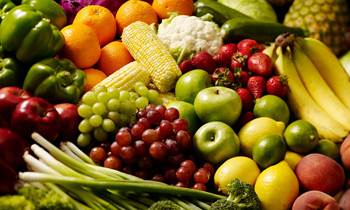Washington DC, Jun 29: Young children with narrow retinal artery diameters were more likely to develop higher blood pressure, and children with higher blood pressure levels were more likely to develop retinal microvascular impairment during early childhood, according to a new study.
The first study to show this connection in children was published today in Hypertension, an American Heart Association journal.
High blood pressure, the main risk factor for the development of cardiovascular disease (CVD), can manifest as early as childhood, and the prevalence of high blood pressure among children continues to rise. In previous studies, analysis of blood vessels in the retina has shown promise as a predictor of CVD risk among adults. In the study titled, "Retinal Vessel Diameters and Blood Pressure Progression in Children," researchers sought to predict the development of high blood pressure in children over four years based on retinal blood vessel measurements.
"Hypertension continues as the main risk factor for the development of cardiovascular diseases and mortality," says Henner Hanssen, M.D., the study's lead author and a professor in the department of sport, exercise and health at the University of Basel in Switzerland.
"Primary prevention strategies are needed to focus on screening retinal microvascular health and blood pressure in young children in order to identify those at increased risk of developing hypertension. The earlier we can provide treatment and implement lifestyle changes to reduce hypertension, the greater the benefit for these children."
Researchers screened 262 children ages six to eight from 26 schools in Basel, Switzerland, in 2014, for baseline blood pressure and retinal arterial measurements. Both measures were taken again in 2018. Blood pressure measurements at both baseline and follow-up were performed in a sitting position after a minimum of five minutes of rest and were categorized based on the American Academy of Pediatrics' blood pressure guidelines. These guidelines utilize the same measurements as the American Heart Association/American College of Cardiology 2017 Guideline for the Prevention, Detection, Evaluation, and Management of High Blood Pressure in Adults.
Results from the analysis indicate: children with narrower retinal vessel diameters at baseline developed higher systolic blood pressure at follow-up; retinal vessel diameters could explain 29 -31 per cent of the changes in systolic blood pressure progression between 2014 and 2018; children with higher blood pressure levels at baseline developed significantly narrower arteriolar diameters at follow-up, depending on weight and cardiorespiratory fitness; and initial blood pressure measures explained 66-69 per cent of the change in retinal arteriolar diameter from baseline to follow-up.
"Early childhood assessments of retinal microvascular health and blood pressure monitoring can improve cardiovascular risk classification. Timely primary prevention strategies for children at risk of developing hypertension could potentially counteract its growing burden among both children and adults," said Hanssen.
Researchers noted limitations of their study include that they could not confirm blood pressure measurements over a single 24-hour period, so they would not account for "white coat" hypertension, a condition where patients have high blood pressure readings when measured in a medical setting.
Developmental stage including puberty status of each child was not accounted for in the study, as well as genetic factors or birth weight - variables that could impact blood pressure development and microvascular health.
In addition, reference values for appropriate retinal vessel diameters in children do not currently exist, so future studies are needed to determine age-related normal values during childhood.
 They have found that naturally-grown food can potentially tackle depression in as little as two weeks. Researchers from the University of Otago studied 171 adults aged between 18 and 25 about their dietary habits.
They have found that naturally-grown food can potentially tackle depression in as little as two weeks. Researchers from the University of Otago studied 171 adults aged between 18 and 25 about their dietary habits.




Comments
Add new comment